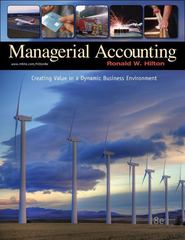Question
Roy decides to buy a personal residence and goes to the bank for a $150,000 loan. The bank tells him that he can borrow the
Roy decides to buy a personal residence and goes to the bank for a $150,000 loan. The bank tells him that he can borrow the funds at 4% if his father will guarantee the debt. Roy's father, Hal, owns a $150,000 CD currently yielding 3.5%. The Federal rate is 3%. Hal agrees to either of the following:
- Roy borrows from the bank with Hal's guarantee to the bank.
- Cash in the CD (with no penalty), and lend Roy the funds at 2% interest.
Hal is in the 32% marginal tax bracket. Roy, whose only source of income is his salary, is in the 12% marginal tax bracket. The interest Roy pays on the mortgage will be deductible by him.
Considering only the tax consequences, answer the following. If required, round the interim calculation for the tax on interest income to the nearest dollar. Final answers should be rounded to the nearest dollar, if required.
a. The loan guarantee:
Hal's interest income from the CDs would be $ before taxes and $ after taxes.
Roy's interest expense from the bank loan would be $ before taxes and $ after taxes.
This arrangement would produce an overall cash flow after taxes to the family of $.
b. The loan from Hal to Roy:
Hal's tax on the imputed interest income from the loan to Roy would be $.
Roy's tax benefit from the imputed interest expense from Hal's loan would be $.
This arrangement would produce an overall cash flow after taxes to the family of $.
c. Which option will maximize the family's after-tax wealth?
Step by Step Solution
There are 3 Steps involved in it
Step: 1

Get Instant Access to Expert-Tailored Solutions
See step-by-step solutions with expert insights and AI powered tools for academic success
Step: 2

Step: 3

Ace Your Homework with AI
Get the answers you need in no time with our AI-driven, step-by-step assistance
Get Started


